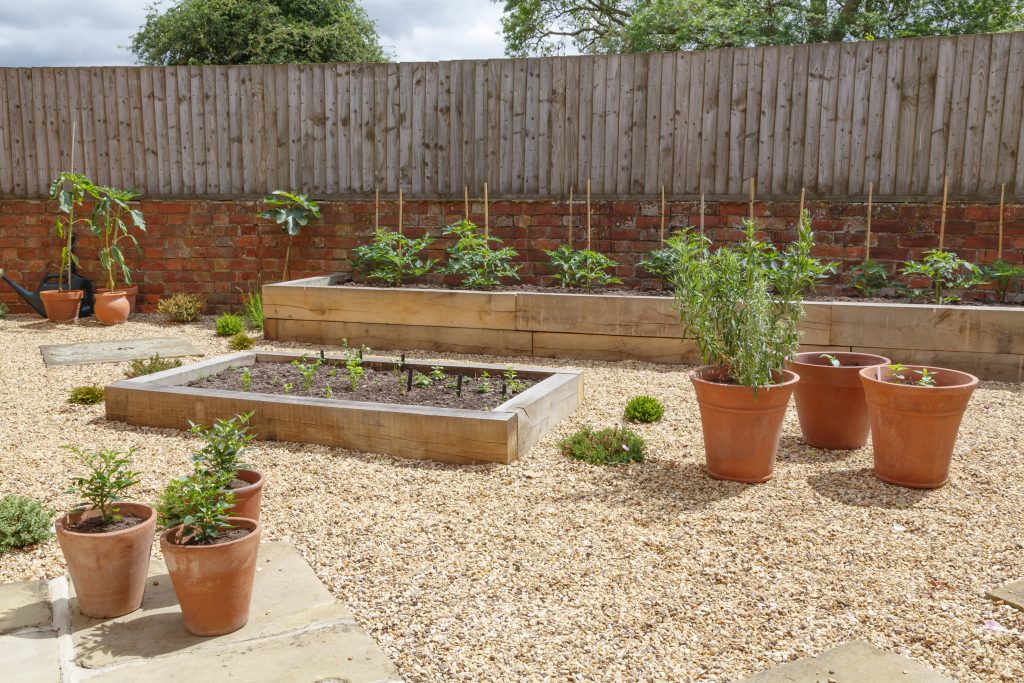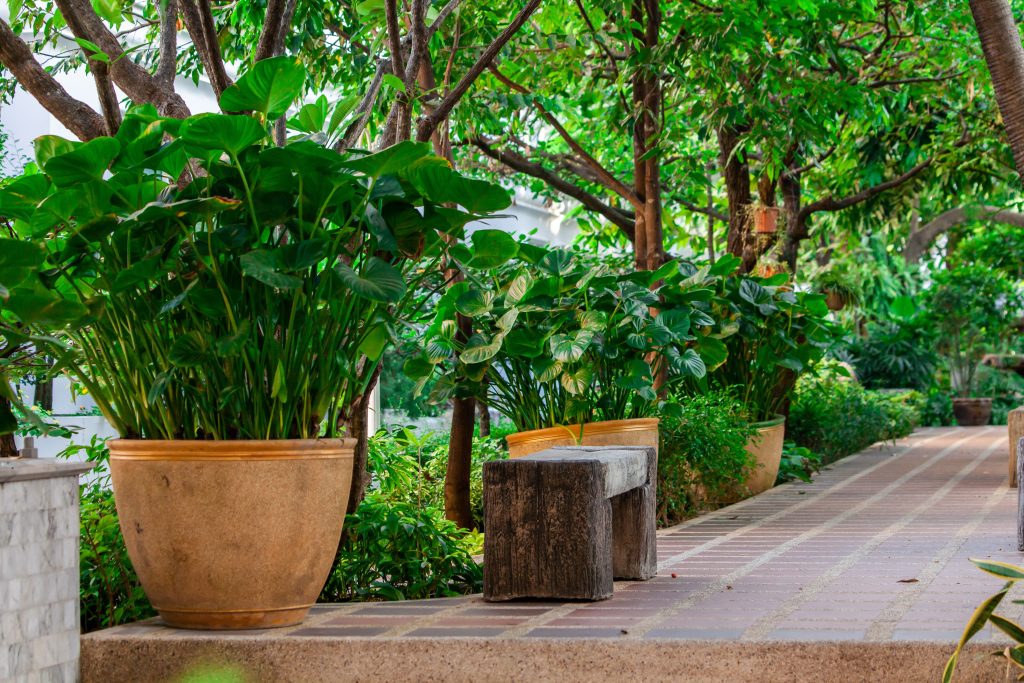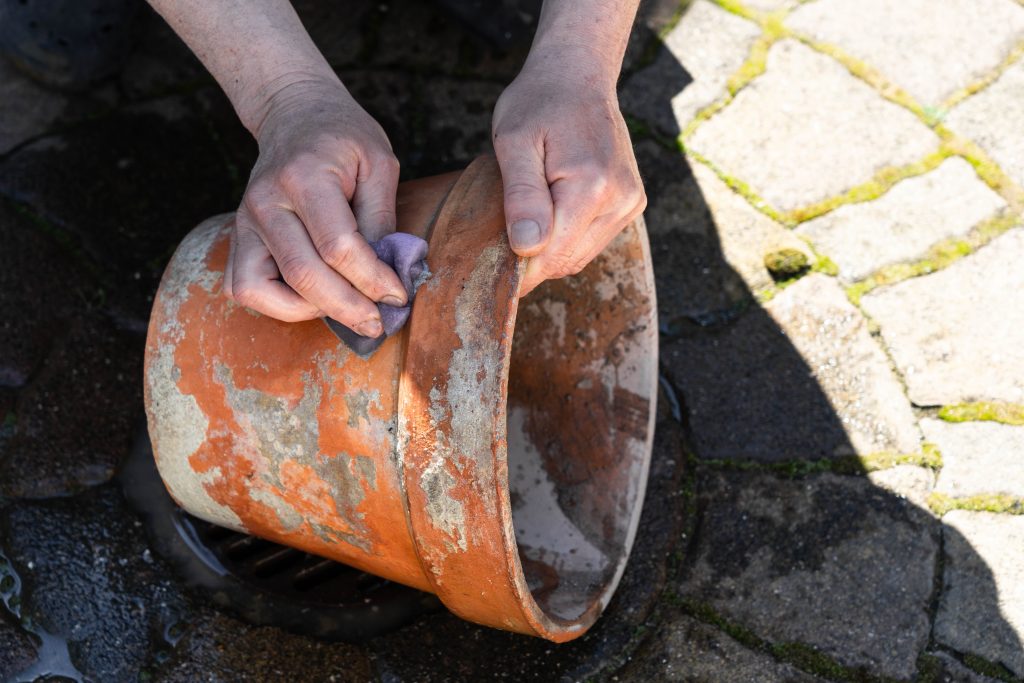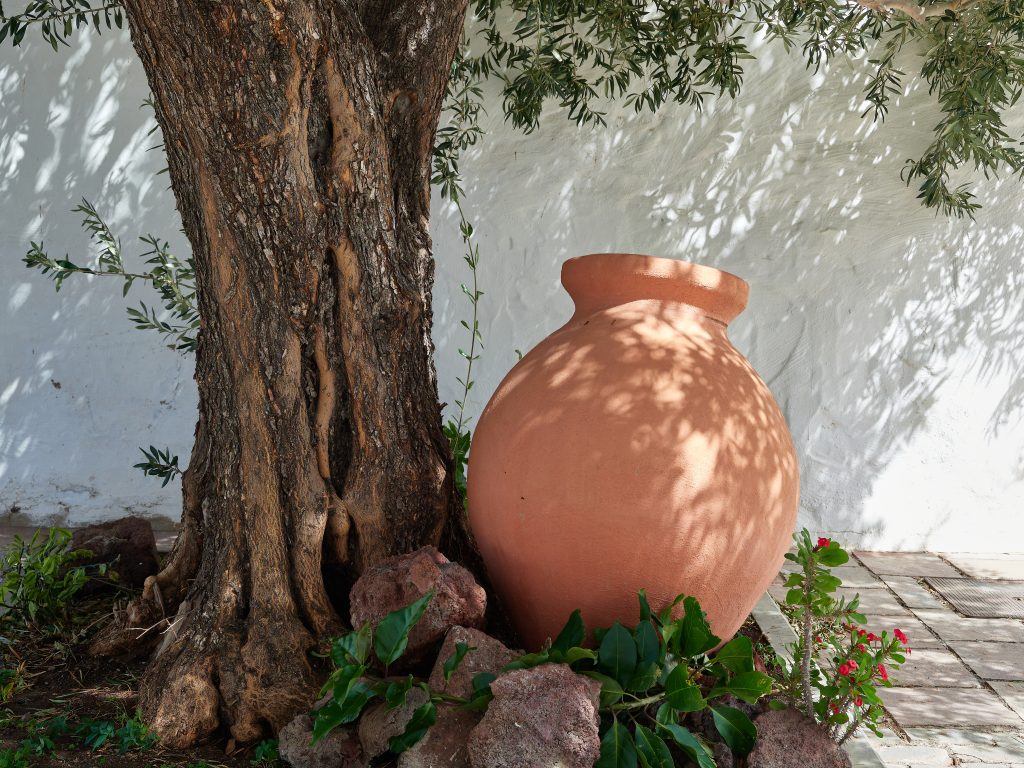The Benefits of Terracotta for Plant Root Health

Terracotta’s natural, earthy tones blend seamlessly into any garden, offering a classic look that never goes out of style. Beyond aesthetics, terracotta is favoured for its unique properties that promote healthy root growth. In this article, we’ll explore how terracotta supports plant root health and why it’s the ideal choice for creating a balanced, beautiful garden space.
The Science Behind Terracotta Plant Pots

Terracotta, a material rooted in centuries of tradition, is crafted from natural clay that is shaped and then baked at high temperatures. This process transforms the clay into a hard, durable material with a distinctive reddish-brown hue.
What sets terracotta apart is its porous nature. Unlike plastic or glazed pots, terracotta’s tiny pores allow air and moisture to move freely through the walls of the pot. This unique feature plays a crucial role in promoting plant health.
A Perfect Combination for Your Garden
Unlike newer, pristine pots, aged terracotta blends seamlessly into the landscape, creating a sense of continuity and depth. The soft, muted tones of weathered terracotta complement both traditional and modern garden designs, offering a versatile option for any style. These pots bring a touch of history and a sense of place to the garden, making the space feel more established and thoughtfully curated.
Keeping Your Plants Happy
The porous nature of terracotta allows air and moisture to circulate through the walls of the pot, promoting healthy root growth by preventing waterlogging. This breathability helps plants thrive, particularly those that prefer well-drained soil conditions, and its ability to withstand harsh weather conditions makes it suitable for year-round use in your garden.
How Your Plants Benefit
As water passes through the porous walls, it gradually evaporates, creating a natural cooling effect that helps regulate the moisture levels in the soil. This slow evaporation process prevents the soil from becoming waterlogged, reducing the risk of root rot – a common issue in less breathable containers.
The increased air circulation through the soil also encourages healthier root development by allowing roots to access the oxygen they need to thrive.
Keeping Temperatures Level
During hot weather, terracotta pots absorb excess heat, helping to keep the soil cooler and protecting roots from overheating. Then in cooler conditions, terracotta acts as an insulator – slowing down the loss of heat from the soil and shielding roots from sudden temperature drops. This thermal regulation ensures a more stable environment for plants, which is essential for their overall health and growth.
Balancing the pH of Your Soil
Another often overlooked benefit of terracotta is its slight natural alkalinity. When water passes through the clay, it can pick up some of the alkaline minerals present in the terracotta, subtly raising the pH of the soil. This can be advantageous for plants that prefer slightly alkaline conditions, such as lavender, rosemary, and certain succulents.
By using terracotta pots, gardeners can create a more favourable growing environment for these types of plants without the need for additional soil amendments.
Why Terracotta is Perfect for Harmonising Your Garden Space

Whether you’re aiming for a rustic, Mediterranean look or something more contemporary, terracotta pots and planters fit seamlessly into a variety of garden styles, enriching the overall aesthetic without overpowering it.
Terracotta’s unassuming design allows it to blend effortlessly with a wide range of materials, from wooden decking to stone pathways, making it a flexible option for gardeners looking to create a harmonious outdoor space.
Terracotta’s ‘Greener’ Durability
When properly cared for, terracotta pots can last for many years, standing up to the elements without losing their charm. Unlike plastic or synthetic containers, terracotta is made from natural clay, a renewable resource, which means it’s also an environmentally friendly choice.
3 Ways to Care for Your Terracotta Plant Pots

To keep your terracotta pots in top condition, start with regular cleaning. A simple scrub with a stiff brush and mild soapy water will remove dirt and prevent the build-up of algae. If your planters develop white mineral deposits from hard water, a vinegar solution can help dissolve these marks.
Sealing your terracotta pots can extend their lifespan, especially if they’re exposed to harsh weather. A breathable sealant will help reduce water absorption, which is particularly useful in preventing cracking during cold months. Apply the sealant to both the interior and exterior of the pot for best results.
During colder months, terracotta is vulnerable to cracking due to freezing and thawing cycles. To protect your planters, consider moving them indoors or to a sheltered area when temperatures drop, or lifting them off the ground using terracotta pot feet. Emptying the soil from unused pots over winter can also alleviate pressure.
Repot Your Plants in Terracotta Pots Today

From the Surfer Circle Vase and Kowloon Pot to the Tunisian Planter, our terracotta pot’s natural breathability supports healthy root development by managing moisture levels and improving air circulation. Beyond their functional benefits, terracotta’s timeless aesthetic and versatility make them an ideal choice for harmonising any garden space, whether traditional or modern.
For those looking to enhance their garden with durable, stylish planters, our terracotta range provides a variety of options. Whether you need a small pot for herbs or a large planter for a tree, we have a terracotta option that fits.
Get a Quote
Looking for advice or have a question? Fill out our quick form below and we'll put you in touch with the right person in our team! We'll get back to you by the end of the next working day.


